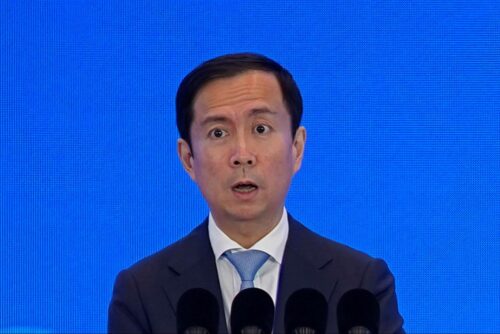Tencent launches a social credit system similar to Alibaba’s


Tencent has released a new product, Tencent Credit (腾讯信用 téngxùn xìnyòng), that will compete with Alibaba’s Sesame Credit (芝麻信用 zhīma xìnyòng), the current leader in China’s “social credit” industry, Tech in Asia reports.
- The service will be available to a massive user base of “all Chinese nationals who use WeChat or QQ,” two chat apps that “each has more than 800 million monthly active users.”
- A good Tencent Credit score is obtained when the company’s algorithm assesses your spending and social habits and gives you high points in each of five categories: “Honor, security, wealth, consumption, and social” (履约、安全、财富、消费、社交 lǚyuē, ānquán, cáifù, xiāofèi, shèjiāo). This appears similar to Sesame Credit, Tech in Asia notes.
- A good score can give users many perks, such as “waiving deposits for housing rentals in Shenzhen, using WeChat to ride the metro, and renting Mobike bikes free for a month.”
- But Tencent has a lot of catching up to do with Alibaba, whose Sesame Credit already has 520 million users, and has already given those users $63.6 in waived deposits, according to Ant Financial, the Alibaba affiliate that runs Sesame Credit.
- Recently, there has been some unusual trepidation among Chinese consumers about their data privacy, an issue that is relatively underemphasized in China relative to other countries with large middle classes. Sesame Credit admitted early this month to an “extremely stupid” design in its app’s settings that inconspicuously shared all users’ credit data with Alibaba’s separate payment app, Alipay, by default.
- But both Tencent and Alibaba have the government’s blessing to develop and market-test these products. Tech in Asia notes that they are two of eight companies to gain approval to pilot credit scores in China in 2015, though none have “passed the scrutiny of regulators so far. Government officials remain doubtful about the objectivity and fairness of systems like Sesame Credit, as they’re tied closely to the companies’ core businesses.”
- Venture capital
Sequoia Capital plans $8 billion global fund, eyes China investors: sources / Reuters - 5G telecom networks
China’s ZTE Corp to raise $2 billion in share placement for 5G plans / Reuters - Investment in tech titans
Alibaba’s a lot cheaper than Tencent and may get cheaper still / Bloomberg - Internet censorship
Brain King becomes first WeChat mini program banned by regulators for “distorting history” / TechNode
Weibo shutters accounts in wake of crackdown / Caixin - Space satellites
China hails its 170th satellite, but hush on spy programs / Asia Times - Coworking spaces
China-based coworking operator naked Hub eyes 200 locations by 2020 / Reuters - Gray rhinos
HNA targets $16 billion in asset sales in first half / Bloomberg - LeEco turmoil
LeEco forecasts massive annual loss as stock tanks / Caixin






